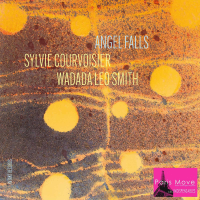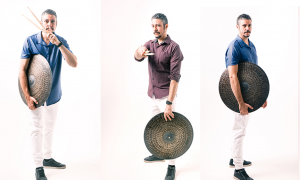Home » Jazz Articles » Interview » Jimmy Herring: The Lifeboat Sessions and More
Jimmy Herring: The Lifeboat Sessions and More
AAJ: Does that go to every effect?
JH: There are always exceptions, but at least during my tenure with him with ARU from '89 through '95, that was where we were. He was really into it being really roots-based. I used to have harmonizers and an echo and I like to think I used it fairly tastefully, but in his mind it was, "You can't do that with your hands so I don't want to hear it." I began to see it his way, so just dropping that stuff and going straight in and maybe just having a volume pedal and an overdrive box—just one thing—it really helped me to get more in touch with my instrument. So when this album came up and I could do whatever I wanted, I still did not want to have any outrageous effects on my guitar. To me, just reverb, no delay, no echo, and nothing else that sounds like we weren't all in the same room. The point is to go for as organic a sound as we could get and if I wanted a certain sound I do it with the guitar and the hands and not with a device.
AAJ: I wanted to talk to you about "Lost."
JH: Yeah, Wayne Shorter.
AAJ: This is an example of how far you've come, not only as a legitimate jazz player but with your own playing, some of the things in your phrasing you are using rather than the alternate picking you've done in the past. You come out of the melody statement with a sax-like legato line that, to my ears, is different for you. Then you go right into these sustained long tones, sounding like more of a rock thing for a second, and then back into the alternate picked jazz phraseology.
JH: James Spaulding's performance on that particular, original version of that tune by Wayne Shorter influenced me on that, most obviously. Subliminally, there might be direct quotes in there in a couple of places. Listening to the way sax players play—they don't tongue every note unless they really want that effect. Sometimes they play a more legato approach and then, of course, Allan Holdsworth has been a tremendous influence on me. His thing is really liquid. On my best day, I would hope that I could even carry his coattails, but...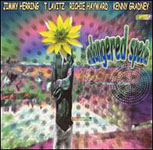 AAJ: Parts of this solo and the one on the next tune "Transients," sound very Holdsworthian.
AAJ: Parts of this solo and the one on the next tune "Transients," sound very Holdsworthian.
JH: I was really into Holdsworth when I was younger. Of course, I never got to the point where I could copy him much, because he goes into some things which are just not humanly possible. I started to realize when I was really young like 23 or 24, that I could spend the rest of my life trying to play like Scofield or Scott Henderson, McLaughlin, Steve Morse or Holdsworth and decided 'I've got to stop listening to this stuff!'
I had to make a conscious effort to stop listening to those guys because I loved what they're doing so much. It's subliminally going to leak in even though you're not sitting there transcribing it. So I started listening to more horn players for a long period of time. So, my son, who is 14 now, started getting really interested in my record collection when he was about 12 or 13. His sister's boyfriend also has an extensive collection that he's very into. He started getting hip to all the horn players. So he wanted to know what I thought about guitar players other than the ones he knew about. He knew about a lot of them, so I played him some Dregs stuff and he freaked out about that, and he loved Mahavishnu Orchestra.
But then I said, "Okay, now it's time to just sit down." So I flipped out Holdsworth on him because he had never heard him and it completely freaked him out. He went on a Holdsworth binge and that set me back to the time when I was 22 years old and couldn't listen to anything but Holdsworth. So I went on another Holdsworth binge where I basically listened to nothing but him for at least three months. I know that leaked into the album somewhat.
AAJ: It's nice for folks like us that have been following along because it didn't leak in there to any overwhelming extent; it's another fantastic spice that you've added to the arsenal.
JH: That's great then. His sense of chord changes and his voice leading affected me in a profound way. The song "Gray Day," for instance—it doesn't have the exact kind of voicings that he uses, the kind that will break your hand, but it's definitely influenced by him, just because of the tonality of it, the minor/major chords and the augmented major 7th chords. It's a fantastic tonality to play in.
AAJ: Yeah, that tune sounds huge, like there are many more melody instruments on there besides alto and guitar. There's a lot of orchestration on that tune.
JH: I have this little device called a Space Station. Someone had given it to me years ago. It's just this little Digitech pedal that I'd never even plugged into. It was in my basement and I noticed it one day. I flipped it upside-down and saw that it just has a couple of patches on it. They're called 'synth-pad' one and two. I realized I could play my voicings that I preferred and I could get some sounds like keyboard strings. So that stuff on that track is all guitars. It still sounds like a guitar, not real strings. But I hate to go to a keyboard player who's playing a string pad and tell him what voicings to play. That should be left up to the individual musician. Instead of having to dictate exactly what to play I was able to just do it myself. We were able to run it direct and it sounded really good, and then we fed it through a Leslie for a couple of tunes. Some people will think it's a synth or an organ or something, but that's all it is.
AAJ: I thought the credits were wrong because it just says Kofi is playing piano. I figured there was a phantom keyboardist.
JH: No, Kinsey did that for us on "Only When it's Light," but not on that tune. Maybe I should've added something to the credits.
AAJ: No, that's what these interviews are for—some nuanced insider info.
JH: It's just a guitar. But thank you for noticing all the little things I didn't think people were going to catch onto.
 AAJ: Anyone who listens to it is going to catch this beautiful stuff.
AAJ: Anyone who listens to it is going to catch this beautiful stuff.
JH: Yeah that device is briefly on a few of the other tunes but it's mostly Kofi on piano, and Matt Slocum, from Oteil's band on organ, with some piano and clavinet.
AAJ: Matt gets a nice organ solo on the first cut ["Scapegoat Blues"].
JH: He's a smokin' player, man. He's a killer player.
AAJ: Oteil's made a few east coast tours and I've seen him in that band.
JH: You're lucky because I don't know if he'll be able to continue to tour with that band, the economy being like it is. He's busy doing other stuff and it costs too much money.
AAJ: Getting back to "Lost" for a second and elsewhere on the CD, I just wanted to make sure to discuss Kofi Burbridge's work. He is an absolutely smoking flautist.
JH: He's just a giant. And this is what I was hoping to accomplish here too—people just don't know how great he is.
AAJ: Who is to blame there?
JH: What it comes down to is that like anyone else, he's got to work and he's got a great gig with Derek Trucks. He's been in Derek's band for like twelve years already. He plays that gig great but that's only one side of him, see. Kofi's true voice is straight-ahead jazz—I mean, that's what he does the best. He wrote "Splash" which is a brilliant tune, and "Only When it's Light." Both of those tunes—he wrote both of them in the tenth grade. Obviously I hadn't met him yet, but when I first met him, in 1986, he brought "Only When it's Light" into the rehearsal. I said, "What a brilliant tune!" and asked him when he wrote it. He said, "You know, man, it's been laying around for awhile." I said, "The changes are fantastic and this melody is hypnotic," and continued persisting until I finally got him to divulge when he actually wrote it.
He was a prodigy. He left home at age 12 to go to the school of the arts in Winston-Salem, North Carolina. He was one of those freakishly talented kids—by the time he was fourteen he was a flute prodigy—by the time he was in high school he was playing piano more. His flute work on the "Jungle Book" thing, "Lost" and "Splash" is just ridiculous.
AAJ: He's every bit the flautist that Osby is a saxophonist, and that's saying a lot—it jumps out of the record. It sounds like he could pull a flute session with anyone on Blue Note any time he wanted to. That goes for piano too, for that matter.
JH: It's like Herbie [Hancock] meets [Thelonious] Monk, man. He really is a totally bad cat. He could play with anybody. On "Lost" he only made two passes at the flute solo and the version on the recording was the first one. Osby of course, was the same way. He did more than one take, but the first takes are what we ended up using. They're just freaks.
AAJ: So I wanted to talk about "Lifeboat Serenade," because the record's called Lifeboat and there is a photograph of a woman in a small boat on the cover. I need to know who that is.
JH: That's my mom, man.
AAJ: It doesn't say that on the record, does it?
JH: No, it doesn't.
AAJ: That would have been my guess, although I collaborated with a friend and he was searching the internet for old stills from the Hitchock movie with Tallulah Bankhead, and your mom, frankly, is much better looking.
JH: I never really thought of that, but yeah. That picture is my mom, when she was 23 when she was on her honeymoon with my dad. My dad took the picture from the back of the boat. It's a family-oriented thing music wise and inspiration wise.
AAJ: So this song sounds like it's basically you music-wise, right.
JH: Right, absolutely.
AAJ: This is just a beautiful, southern thing—heart wrenching stuff—unbelievable. Where does Jimmy end and Derek begin on this thing? This sounds like Derek here [playing example over the phone], but when you come in it's almost indistinguishable, it's almost like you have a slide thing happening with the fingers.
JH: Oh, man! You are now my best friend! [laughs] He and I have gone back and forth for a lot of years. I've known him since he was eleven, and when he was eleven he could plays stuff that could stop time. And now, he's got the same thing, only he's a lot better. We would go through different periods of time where we would influence each other in one way or another. At first, he seemed to be influenced by me more than I was by him, but then I started to switch—I'd get really influenced by him. I can't play slide, and I don't want to play slide because he plays it so well. It's like why would I bother to even pick one up? People have actually asked me while he was in the same room why I don't play slide. I always say, "See that blonde-haired kid over there? That's why."
AAJ: That makes a lot of sense, actually.
 JH: We've been like brothers since we met. It's not just music because we were brought up similarly; for instance, we both love to fish and we love the outdoors. We both have a lot in common in terms of what interests us away from music.
JH: We've been like brothers since we met. It's not just music because we were brought up similarly; for instance, we both love to fish and we love the outdoors. We both have a lot in common in terms of what interests us away from music.
AAJ: How'd you meet him at such a young age?
JH: I was with Bruce Hampton and he knew this guy named Bunky Odom, who used to work for Capricorn Records back in their heyday, when the Allman Brothers were the biggest band on Capricorn and they helped get Jimmy Carter elected president in the '70s. Bunky used to come out to see the band all the time. He lived in Charleston and he was there literally every time we played. He was the kind of guy that would slap you on the back and say, "You boys're doing great, just keep it up!"
He's a manager, so sometime around 1990 I'm guessing, he comes around and tells Bruce, and he tells me, that he's got this kid, and he's nine—nine years old and he plays like Duane Allman. Of course we'd go "Really, man?" But of course we didn't believe it—who is going to believe that, right? So it gets to a couple of years later and the kid's all of eleven now, and Bunky is still singing his praises but this time he actually wants him to open a show for ARU. So, Bruce being who he is, is like, "Sure, Okay!"
I forget where the first time we played with him was but it might've been Charleston at this place called the Music Farm. Derek killed all of us! We walked in at sound check and this kid was playing and he's not moving, and it was like God's divine light was shining down on this kid and it was pouring out of him and we were all just brought to our knees. And this was at sound check—the most sterile time of a musician's life. Sound checks are not usually very inspired-sounding. At that moment he became an honorary member of the ARU. Any time we played together where he would open the show, he'd come out and play our set with us and we wouldn't let him get off the stage.
So that had a pretty profound effect on him, being so young and being around some other musicians who were into some heavy music. He got to be great friends with all of us and getting into heavy music, listening all the time to all of the deepest blues like Son House and Howlin' Wolf, and then he got into Coltrane. That's when he became a musicologist and he really has never looked back. He just keeps getting better and better, moving forward and listening to new things and seeking out new music that none of us has ever heard and turning us onto it—really just an amazing kid. So that's how I met Derek when he was eleven—after hearing about him since he was nine.
AAJ: I have a nine year-old so I hear you.
JH: Who could believe it? And then I'd get mad because people would hear him and go, "Yeah, he's pretty good for a kid." We knew better. Eighty years old or eight—whatever—we always called him an old soul.
AAJ: I saw Frogwings, the band you had together, in Boston.
JH: Oh yeah, we had a good time doing that with Uncle Butch [Butch Trucks, the drummer in the Allman Brothers, is Derek's uncle]—you know.
AAJ: So this song, "Lifeboat Serenade" has a great escalating part here that's beautiful [playing passage beginning at 4:20]—now, this sounds like Derek, but thicker.
JH: No that's me. See it's funny you picked that because I tried to give him that outro solo but he made me take it. My friend who played drums on that tune named Tyler Greenwell, he heard that and said, "Wow! That sounds killer where you and Derek are trading right there!" Now, he knows Derek really well and he's played with him a lot, so I was really flattered. That just cracks me up, and Derek would think it's funny too.
AAJ: But how're you doing that?
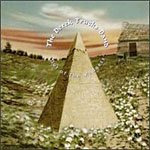 JH: I'm just really into his nuances and I probably stole some of them, without really meaning to.
JH: I'm just really into his nuances and I probably stole some of them, without really meaning to.
AAJ: Now that's an understatement. Are you sliding into the notes and chords with your fingers?
JH: Yeah.
AAJ: It sounds like a fretless guitar almost.
JH: That's the goal. I'm trying to play where you don't hear the frets. Derek is playing the part of the vocalist on that tune at the two starts and the verse—the parts where the singer would come in—and then there's a solo in the middle of the tune, which is me with a different kind of sound, where you can tell the difference easily. I wanted him to trade off again at the end, but he said, "No, man. You have to leave what you recorded alone." Unfortunately, we wanted to be there at the same time, but we couldn't get that together because his schedule and my schedule and all the logistics were wrong—it was crazy.
AAJ: Hold on. You guys didn't record at the same time?
JH: No, in fact, I was done with everything on the record except his part and I had to drive down to Jacksonville from Atlanta and get him to put it on there. Unfortunately I was on tour with Panic and when I got off the road he was making a record of his own, so there was just no good time to actually make the session at the same time.
AAJ: You do an unbelievable job of making it sound like you're in the same room.
JH: Before it got mixed I was really concerned about that. I think a lot of the credit goes to the guys who mixed it, Jeff Bakos and Rush Anderson. I was there giving them my nickel's worth but they're the ones that made it sound right. Getting the right sound on everyone goes a long way to making it sound like we're at least in the same time zone.
AAJ: And everything you do, almost every phrase, has your stamp on it. It's that same southern feel that's not unlike the ARU stuff and Oteil's stuff.
JH: Yeah, Oteil—what about his solo on the record,on 'Transients?"
AAJ: Ridiculously great. That quick little chord solo at the beginning, especially.
JH: But that triplet thing that follows it is—I was standing next to him when he did that and I remember saying "Okay, that's it!"
AAJ: Yeah, that's become an Oteil signature.
JH: There's only one guy that can do that.
AAJ: Agreed. He got only one solo on the record, which shows how little room you had for all the great things on there. The record is crammed with so many great moments.
JH: I wanted to give him more solos. For instance, "Gray Day" was a tune where I wanted him to take a solo but it sometimes it came down to time and logistics. He was on the road with Kreutzmann and the Allmans.
AAJ: That tune has a great progression—the kind of oblique harmony fusion fans have heard before, but haven't. That's a great title, 'Transients." What is going on with that tune?
JH: I was really intrigued with melodic and harmonic minor.
AAJ: Is this the thing Oteil's talking about on the web?
JH: I haven't seen it. I'm somewhat computer illiterate. It's basically just an E minor, E harmonic minor and E melodic minor. I started looking at mapping out chord scales for all those modes and looking at what chords were common to all three of those scales and looking at which ones were different from each other. Looking at those I was able to hone in on a couple of things that distinguish them from each other. It's real basic, man. Allan Holdsworth would fall over laughing because for him it'd be like reciting the alphabet. It's kind of scratching the surface of what's possible, but it worked for me.
AAJ: For me, that's the real monster fusion tune on there.
JH: That's one that I think is so different that it could be weak in a sense. But the solos by Oteil, Osby and Kofi are great and the way they interact near the end really makes it.
AAJ: This is the other tune where you go more legato.
JH: Those changes really call for it.
AAJ: The first tune, "Scapegoat Blues," is more like what we could see coming, a southern shuffle with a crazy head.
JH: Yeah, a blues with a twist.
AAJ: Is that's out of that Dregs influence?
JH: Very much, yes.
AAJ: On Kofi' s "Only When it's Light" there's some beautiful flute counterpoint with you where he takes a couple of one bar flute solos before taking a full piano solo.
JH: Yeah, plus he splits the longer solos on there. Instead of taking a piano or flute solo all the way through, he takes one of each. On "Splash" he does it again. I take two choruses, then he takes one chorus on piano, then one on flute; finally, Greg Osby takes the last two choruses. I was a little concerned that it might make it off balance but Kofi convinced me to stick with his approach, and it works.
This record sounds better than anything I've done. There's basically never been any fix-ups on previous records in terms of sound. With ARU the first album was live and the second was done in the studio but I barely got to do any overdubbing. Bruce was not into any overdubbing. He was a firm believer of not doing more than a few takes. As a result, I always thought the Mirrors of Embarrassment (Capricorn, 1993) record could have been a much better recording. It never felt like it sounded really good and the guitar sounded... I guess I was too close to it. We were in a big beautiful studio, but I'll never forget it—to keep my guitar from bleeding into the drums, they actually stuck my guitar amp in a utility closet.
AAJ: That doesn't sound like very modern recording approach.
 l:r: Kofi Burbridge, Jimmy Herring, Oteil Burbridge, Jeff Sipe
l:r: Kofi Burbridge, Jimmy Herring, Oteil Burbridge, Jeff Sipe
JH: So you see why I always thought it could have sounded so much better. But it was what it was.
AAJ: Yeah, merely one of the touchstone albums of the Jamband era. For me it's actually the number one example of that time when the genre was taking off, during the time of the HORDE Festival and all.
JH: During that time we saw what he studio was. None of us had recorded that much—not for anything major, anyway. I wanted to use the studio the way it could be used. It's different than live—you can craft the recording more. Live you don't get a second chance. You can't add other tracks. I was hoping to craft a record with these people I had played with for so long, knowing what everyone was capable of, but that just wasn't the philosophy at the time.
The bass, the drums and the piano were done pretty fast but I had to redo the guitars because in the studio, when we cut live, I was playing through a little Fender Deluxe amp and the speaker had this thing going on with it where certain notes I would hit would sound like something was wrong with the speaker. There was some stuff worth keeping from the original session but I had to redo the entire thing because everything would be grooving and there would be this one note that would sound awful. It's a phenomenon called 'cone cry.' Do you know what that is?
AAJ: Beyond the usual feedback problem, no. .
JH: It's not feedback so much as it is certain frequencies on certain notes where the cone from the speaker makes a really undesirable noise—that's the cone cry. The only speakers I've ever played through that don't do it are these tone tubby speakers, made by a guy named John Harrison in California. They're made from hemp.
AAJ: But of course.
JH: Believe it or not, man, there is really something to them. Everybody's using then now including Clapton, Santana and Billy Gibbons. I've been using them for years now. His business is called A Brown Soun';. He had this idea years ago to use hemp instead of regular paper cones. He told me about it a long time ago and I thought it was a gimmick. I didn't try them until this old Fender Amp that had the original speakers in it needed repair. This guy was really good at re-coning old speakers. That's how he made his living until he started making these hemp speakers. So I called him and he said, "I can re-cone your speakers for you but you should play my speakers—you'll like them better. I'll make you a deal. If you try my speakers and you don't like them I'll re-cone your other speakers for free." That's a deal you can't refuse.
So he put those other speakers in my amp and I've never looked back. It was an instant transformation that made the amp sound a hundred times better. I couldn't believe it so I started telling everybody I knew about them, so Derek got a bunch and Bobby Lee Rogers got some, and now, it's taken off.
AAJ: Anti-cone cry.
JH: I don't know what it is but they also have a really distinctive sound. All the other guitar speakers have cone cry but I have never heard a tone tubby speaker do it. It's probably the biggest tool I can think of that's made the sound better. I never knew speakers could be that important until he swapped them out of my old '64 Fender.
AAJ: So when you record do you use more of a signal from the amp or the board, or do you blend the two?
JH: We basically mike the amp with two microphones and then we blend the microphones, but in the case of the Mirrors record they were both on the same speaker. You mike one speaker with two mikes.
AAJ: I wanted to mention the In A Perfect World (Intersound, 1996) record that you recorded with ARU—the one without Bruce.
JH: Kofi's song, "Splash," was on that record, too. I didn't play on it because it was the last song to be recorded and I'd gone back to my parents' house in North Carolina for two days. I knew I was supposed to play on it when I came back, but when I listened back to what they had done, I said, "I'm not touching that!" It was perfect. That's an incredible recording of that song. Not a lot of people heard that record, plus I didn't play on that version, so I figured it was okay to re-record it for this album if Kofi was up for it.
But as far as In a Perfect World goes, I really was not pleased with it. The sounds weren't good—it was good playing, but the sound was bad. Do you remember when ADATs came out? Everybody was like, "Hey man, ADATs are great!" I told everybody I hated them but nobody would listen. You could record on two-inch tape or you could use these ADATs on video machines or whatever. It was cheaper but it was horrible. Now you can buy an old ADAT machine for two hundred bucks. At the time they were more than a thousand.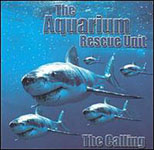 AAJ: Were you happy with The Calling (Innio, 2003)?
AAJ: Were you happy with The Calling (Innio, 2003)?
JH: That one was a little more of a rock album and it was produced by Rodney Mills, in conjunction with us. He's a heavyweight. They had a Neve console in that studio, so that was a real studio and a real producer, so we got some pretty real sounds. But the music was so different on that one. Our whole focus had completely shifted with a different drummer and a different singer.
AAJ: I was just trying to get a feel for which of your recordings you were most happy with sound-wise.
JH: The live album, the first ARU record, was actually well-recorded. They captured the sound of the band at that particular time. The guitar tones on the others just aren't as good. In a Perfect World I'd like to remix. Some of the guitar tones on that, there's no warmth—the tones are like ice-picks to the ear. [laughs].
AAJ: I love that song "Plain or Peanut" on there.
JH: That's Oteil's bebop tune. We used to open with that. I used to ask them to get loose before we played it. It's one of Oteil's little masterpieces. That's a tough one—it's intentionally tough to play.
AAJ: So when you say you used the studio a lot for the new record, I'm betting you didn't use it so much except on tunes like "Gray Day," and of course the "Jungle Book" thing, or where Greg or Derek had to take separate passes.
JH: Yeah, like on "Scapegoat Blues," there's very little overdubbing. On the head at the end I overdubbed a harmony to the original head. On the swing part of the head on the last time through I overdubbed up an octave track to it, but it's mixed very subtly. .
AAJ: So you're overdubbing to add harmonies but not to do any fixes.
JH: We're all so comfortable with each other and there's no producer, so yeah.
AAJ: So to fish around on the gigging front—you've done some gigs with Oteil's band right?
JH: There were four gigs in Alabama, and Oteil asked me if I could do them so I agreed.
AAJ: So, geography is half the battle.
JH: He lives in Birmingham so that's only two and half hours form here. It was easy to do. I really love his band and Mark Kimbrell, his guitarist, is really different. He's totally into Frisell and Scofield and that style of playing.
AAJ: So while it's a priority for you to tour this band, you'll have to balance that with Widespread and anything else huge that may come up.
JH: This album was pretty much just a statement. I didn't have any plans to go tour behind it. Of course I'd like to, and the label would love me to, so as it turns out there might be some time that I didn't know I was going to have but I have yet to get on the phone and find out who has the time to tour.
AAJ: Abstract Logix seems to be getting into the DVD thing lately so that could be a possibility as well.
JH: Yeah, we've talked about that too.
AAJ: I would ask several probing, revelatory questions about Widespread but I am not an aficionado of that band.
JH: I was never a Widespread aficionado either. But they're good friends of mine. They're the ones that came and found ARU in this little pub I was telling you about when we were doing it one night a week. They probably came in for the cheap beer.
They said, "You guys are crazy. Why don't you come play some shows with us?" If it wasn't for them we would never have left this town. They had three shows already sold out at Center Stage the following week and they didn't need an opener, but they liked the band enough that they wanted us along anyway. We weren't making any money, but they said, "You guys have got to take this circus on the road," and they paid us.
When they said that to Bruce, I remember pleading in unison with Oteil, "Come on Bruce. Please take us on the road." I'll never forget Bruce saying, "You can't handle the road. You'll be crying for your mommy in the first week." [laughs] But through them we met Blues Traveler and Phish and Dave Matthews. So years later, when they called me it was like, "Whatever you need. What can I do for you?"
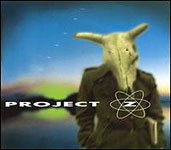
I've been blessed beyond belief and luck is a tremendous part of the equation. You can go anywhere and find people that can play and I mean really play. But that's not enough. You know what it takes to be in a band. It's bad enough being in a three piece band. Get that up to five and now you've got five egos to deal with.
AAJ: And you're part of these organizations that can get like a multi-tiered corporation.
JH: Exactly. You've got to be able to get along with people and you've got to be willing to do what it takes to make everything work smoothly. Basically, if somebody needs you to do something, you've got to be ready to do it.
AAJ: It seems to come naturally to you.
JH: I don't know about that, but I guess so.
AAJ: No really, I've spoken with you only a few times, but it takes about 90 seconds to see you're one of the nicest guys in the business, or anywhere, for that matter.
JH: C'mon, man. It's a little bit to ask for. It's not a lot to ask for—to be a decent person and get along with people.
AAJ: Sometimes it can be impossible. No matter how you try to please people, someone else—and that someone could be important—is mad.
JH: Especially when you're young and starting out and you have some ideas—everybody has their own ideas at first. I'd say it's good at first to actually work for someone else in a band-leader situation where even if you think they're wrong, you've still got to do it their way.
AAJ: It's hard to get what you want and do it in a super-friendly way.
JH: Everybody's so cool anyway. People always say, "You're so humble," or whatever. I always say, "Mother Theresa was humble. I'm just running my hand over a piece of wood." [laughs] This is Bruce Hampton talking by the way. This is what he'd always say. "You ain't good enough to be humble Herring. You're runnin' your hand over a piece of wood—you're not curing cancer out there." Sometimes people glorify film stars and musicians and sports stars to a point where it's really just not...come on.
AAJ: So a question I always love to ask—what else have you been listening to lately?
JH: The new McLaughlin has been in heavy rotation around my house because my son is into it too, but again—god man—I could spend the rest of life trying to dissect what he does. I could throw myself into his music, never look back and be seventy-two years old still trying to figure out how to play "Meeting of the Spirits." It's hard for me to listen to anything casually because I get very intrigued by it.
Scofield hit me that way when he put out those records in the '80s like Still Warm (Gramavision, 1986) and Loud Jazz (Gramavision, 1987). I was so knocked out by him and a lot of guys I knew were into him. Scott [Henderson] sounded like he was really into Sco. His harmonic formulas are common in the jazz world with horn players. They use triads in different kind of cycles over different kinds of chords and have turned it into an art form. You mix that with his sense of incredible, behind-the-beat playing and rhythmic knowledge, and before you know it, even if you haven't transcribed that stuff, it starts coming out in your playing.
If you listen to other guitar players, that's where all your playing is going to come from. If I listened to that too much, I'd sound like them more. I already sound like them anyway, without even meaning it. I'll never shed sounding somewhat like Steve Morse, somewhat like Holdsworth, somewhat like Henderson, somewhat like Beck, because I love those guys so much that it's bound to leak in. So I try to listen to other music. Hopefully it'll balance out a little bit more and I won't sound like any one influence. I'll sound like me, which is what I'm shooting for.
Tags
PREVIOUS / NEXT
Support All About Jazz
 All About Jazz has been a pillar of jazz since 1995, championing it as an art form and, more importantly, supporting the musicians who make it. Our enduring commitment has made "AAJ" one of the most culturally important websites of its kind, read by hundreds of thousands of fans, musicians and industry figures every month.
All About Jazz has been a pillar of jazz since 1995, championing it as an art form and, more importantly, supporting the musicians who make it. Our enduring commitment has made "AAJ" one of the most culturally important websites of its kind, read by hundreds of thousands of fans, musicians and industry figures every month.








